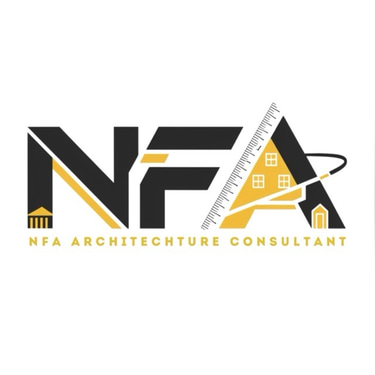How Local Planning Authorities View Home Extensions & Loft Conversions
London, UK
Mark, W.
9/18/20253 min read


Planning a loft conversion or a home extension is an exciting step for many homeowners. It promises more space, better functionality, and often an increase in property value. But before you can begin construction, there’s a critical hurdle to overcome—planning permission.
Local Planning Authorities (LPAs) across London and the UK carefully assess applications to ensure projects align with regulations, preserve neighbourhood character, and minimise disruption. Unfortunately, many applications are refused each year due to common mistakes that could have been avoided.
In this article, we’ll explore how LPAs view extensions and loft conversions, the most common reasons for refusals, and how working with experienced architects in London can dramatically improve your chances of approval.
Why Planning Permission Matters
Not all projects require full planning permission—some fall under permitted development rights. However, when your design impacts height, volume, neighbouring properties, or is located in a conservation area, planning permission is almost always needed.
Planning permission ensures:
Developments are safe, structurally sound, and compliant with building regulations.
Projects complement the local character of the street or area.
Neighbours’ light, privacy, and amenity are protected.
Sustainable building practices are encouraged.
Failing to secure permission can lead to enforcement notices, fines, or even forced demolition—a costly mistake every homeowner wants to avoid.
Common Reasons for Planning Refusals
Local councils reject applications for predictable reasons. Here are the most frequent ones:
1. Out of Scale or Character with the Area
A loft conversion or extension that looks disproportionate compared to surrounding homes is likely to be refused. Councils prioritise designs that blend with existing architecture.
2. Loss of Light or Privacy to Neighbours
If your proposed extension blocks natural light into a neighbour’s window or allows direct views into their garden or home, expect objections.
3. Overdevelopment of the Site
Trying to add too much bulk or mass to a small plot can be considered “overdevelopment.” This is especially common in dense London neighbourhoods.
4. Impact on Streetscape
Dormer windows, rooflines, or side extensions that disrupt the rhythm of the street often face rejections. LPAs focus heavily on maintaining visual harmony.
5. Conservation Areas & Listed Buildings
If your property falls within a conservation area or is listed, restrictions are tighter. Even minor alterations may face scrutiny to protect heritage value.
6. Insufficient Documentation
Applications are sometimes refused not for design reasons, but because drawings, technical reports, or supporting statements were incomplete or unclear.
How to Avoid Planning Refusals
Securing approval comes down to preparation, expertise, and good communication. Here’s how you can maximise your chances:
Work with an Experienced Architect
An architect with local experience understands planning policies and what councils typically approve. At NFA Architecture, we regularly handle applications across London boroughs and know how to design proposals that balance your vision with planning rules.
Understand Local Policies
Each borough publishes planning guidance. Reviewing these helps shape realistic expectations about height, massing, and acceptable styles.
Engage Neighbours Early
Consulting neighbours before submitting your application can help you address concerns (like loss of light) and prevent objections later.
Provide Detailed, Accurate Drawings
Councils expect precise architectural drawings and supporting documents. 3D renders, sun path studies, and design statements can demonstrate how your project minimises impact.
Use Pre-Application Advice Services
Most LPAs offer pre-app advice. Submitting initial designs allows you to gather council feedback before submitting a formal application.
Loft Conversions and Planning Permission: A Special Case
Many loft conversions fall under permitted development, but there are limits:
You can only extend up to 40m³ (terraced) or 50m³ (detached/semi-detached) of additional roof volume.
Dormers must not extend beyond the plane of the existing roof slope facing the highway.
Side-facing windows must be obscure-glazed and non-opening below 1.7m.
Exceed these conditions, and you’ll need planning permission. A loft conversion architect can help you design within these parameters—or prepare a strong application if permission is required.
Case Study: Avoiding Refusal Through Smart Design
One recent client in South London approached us for a double-storey rear extension. Initial sketches risked refusal due to overshadowing the neighbour’s garden. By adjusting the roofline, stepping back the first floor, and using matching brickwork, we secured planning approval on the first submission.
This highlights how design sensitivity and professional experience can make the difference between rejection and approval.
The Role of Architects and Planners
Partnering with an architect is more than producing drawings—it’s about navigating the planning process strategically. At NFA Architecture, we:
Assess your property’s potential before design begins.
Prepare all planning application documents with accuracy.
Liaise with planning officers to resolve concerns quickly.
Represent you in case of objections or appeals.
By working with us, you dramatically reduce the risk of costly delays or rejections.
Conclusion
Homeowners often underestimate how strict local planning authorities can be when it comes to loft conversions and home extensions. The good news is that most refusals stem from avoidable mistakes—oversized designs, poor documentation, or failure to align with local character.
By engaging skilled architects who understand local regulations, you can transform your vision into an approved, build-ready design.
At NFA Architecture, we specialise in securing planning approvals for loft conversions and home extensions across London. If you’re considering expanding your home, let us help you design a proposal that wins council approval the first time.
👉 Ready to get started? Contact us today for a free consultation and discover how we can bring your project to life without planning delays.
